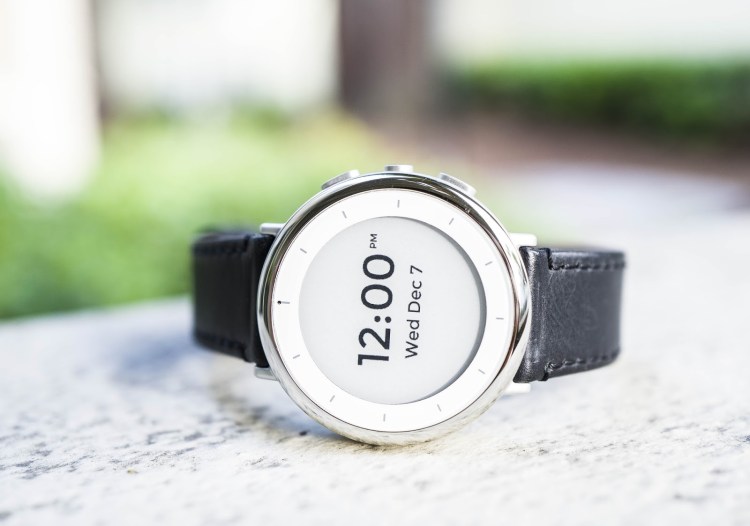testsetset
Verily, the health technology subsidiary of Google’s parent company, Alphabet, today talked about its latest project: a smartwatch packed with sensors, an always-on display, a big battery, and a long-lasting battery that’s meant for longitudinal studies.
And no, it’s not for sale.
“While numerous wearables exist in the market, we have a specific need outside of these offerings: namely, the scalable collection of rich and complex datasets across clinical and observational studies,” Verily technical lead David He, product manager Tushar Parlikar, and technical program manager Harry Xiao wrote in a blog post.
Verily, formerly known as Google Life Sciences, disclosed that it had taken on $800 million in funding from Temasek earlier this year. The unit’s previous projects include the smart contact lens, but many of its initiatives involve partners like the GlaxoSmithKline, Sanofi, and the U.S. National Institutes of Health (NIH).
June 5th: The AI Audit in NYC
Join us next week in NYC to engage with top executive leaders, delving into strategies for auditing AI models to ensure fairness, optimal performance, and ethical compliance across diverse organizations. Secure your attendance for this exclusive invite-only event.
Sure enough, partners will use the new Study Watch for their own purposes. Radboud University Medical Center, Radboud University, and ParkinsonNet will use it for the Personalized Parkinson’s Project, and Duke University and Stanford Medicine will use it for the wide-ranging Baseline study.
Google announced Android Wear version 2.0 in February and is now promoting compatible devices, like the LG Watch Style and Watch Sport, after introducing Android Wear in 2014.
Always-on displays aren’t a new thing. The LG G Watch from 2014 had one, and so do Samsung’s new Gear S3 watches. The first- and second-generation Apple Watch devices lack always-on displays. The Study Watch will always provide the time, and at times it will also show instructions for studies.
Data is encrypted on the watch and stays encrypted as it goes to Verily’s servers, wrote He, Parlikar, and Xiao.
The watch will run something called a real-time OS (operating system), and it will connect with a Verily Study Hub on a paired mobile device to upload data, a spokesperson told VentureBeat in an email.

